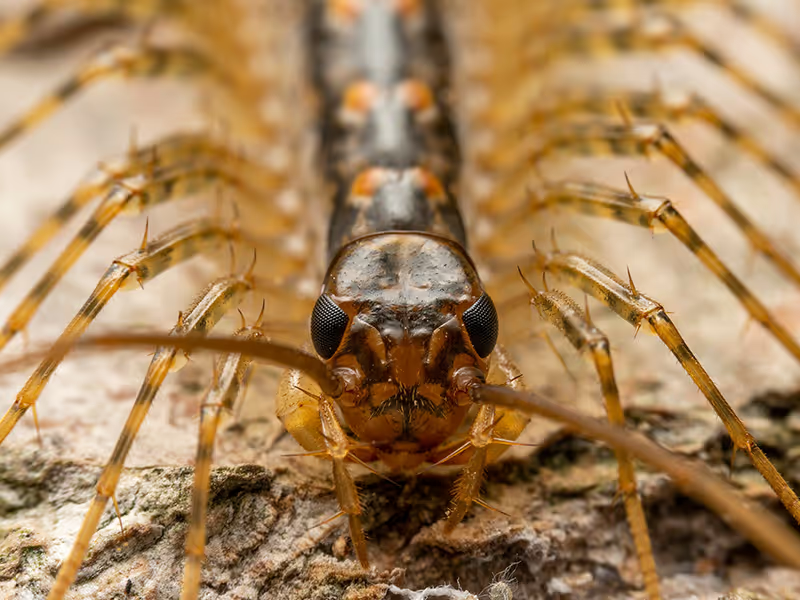Do House Centipedes Bite?
While centipedes use venom to immobilize insects when they feed, they do not pose a threat to humans—they typically do not bite unless they feel threatened.
If your house has holes in the floor or walls or gaps around the building, centipedes could be hiding in them. Since these nocturnal creatures are small and fast-moving, they are not easy to notice. If you feel tiny, uncatchable creatures crawling on your body at night, it could indicate a house centipede infestation. However, since house centipedes do not bite human skin, any bites you experience are likely from other pests.
Baby Centipedes
Once house centipedes make their way into your home, they will reproduce and lay eggs. When these eggs hatch, baby centipedes will emerge. Baby centipedes resemble adults but are smaller and may have fewer legs at birth.
What Causes Centipedes in the House?
Several factors can attract house centipedes to your home:
You Have Other Pests in Your Home
One major cause of centipede infestations is the presence of other pests. House centipedes feed on insects such as cockroaches, silverfish, and spiders. Eliminating these pests will remove their food source and help prevent an infestation.
Cold Weather Brings Them Indoors
Like many other pests, house centipedes seek warmth and shelter during cooler seasons, which can drive them indoors.
How Do Centipedes Get in Your House?
The most common way centipedes enter homes is through small cracks in the foundation, walls, or around doors and windows. Once inside, they seek dark, damp places to hide. You may find them in areas such as drains, crevices, basement cracks, and bathtubs.
How to Get Rid of a Centipede Infestation
Once you have identified a house centipede infestation, here are some tips for eliminating them from your home:
- Use sticky traps: Sticky traps, commonly used for detecting and catching pests, can help capture house centipedes. You can find them at most hardware stores.
- Apply insecticides: If the infestation is severe, insecticides can be used. Some pesticides target the centipedes' nervous system, ultimately killing them.
- Keep your house dry: House centipedes thrive in humid environments. Reducing moisture by using dehumidifiers and fixing leaks can help deter them.
- Seal all crevices: Centipedes enter homes through small cracks and openings. Seal gaps around windows, doors, and walls to block their entry. Use window screens for added protection.
Get Help from Pest Professionals
House centipedes can be as bothersome as other pests. Since they feed on insects, their presence may indicate an underlying pest problem. If you have a centipede infestation, it’s best to seek professional pest control services.
Big Time Pest Control offers a satisfaction guarantee and a 24-hour phone line to assist you anytime. We serve areas including Redding, Chico, Sacramento, and more. If you see these creepy crawlers, give us a call!


















